

Taking responsibility
Jästbolaget has a limited environmental footprint compared to other industrial companies. Our products are natural and cause no harm during propagation or use. Yeast production however still impacts on the environment in various ways. Our operations are therefore subject to permits setting limits in areas such as noise emissions, release of wastewater into the municipal sewerage system and cooling water into Lake Norrviken.
Environment
We care deeply about the environment and so strive constantly not only to comply with local rules and regulations but also to minimise our global carbon footprint. Read on for some examples of how our operations affect the outside world and what we are doing to reduce our environmental impact.
Production process
The manufacture of yeast involves adding nutrients in the form of molasses, a sugar solution that also contains significant amounts of many other substances. During the fermentation process, the sugar is turned into biomass (yeast cells), energy (heat) and carbon dioxide. As molasses are a renewable raw material, the fermentation process does not result in net emissions of carbon dioxide into the atmosphere.
Odours
The fermentation process produces not only yeast cells but also other products, including sulphur compounds and higher alcohols. The concentrations of these substances in the air leaving the process are very low, but because the human sense of smell is particularly sensitive to sulphur compounds, odours can sometimes be noticed in the local area. These emissions are completely harmless, but we strive constantly to reduce them.
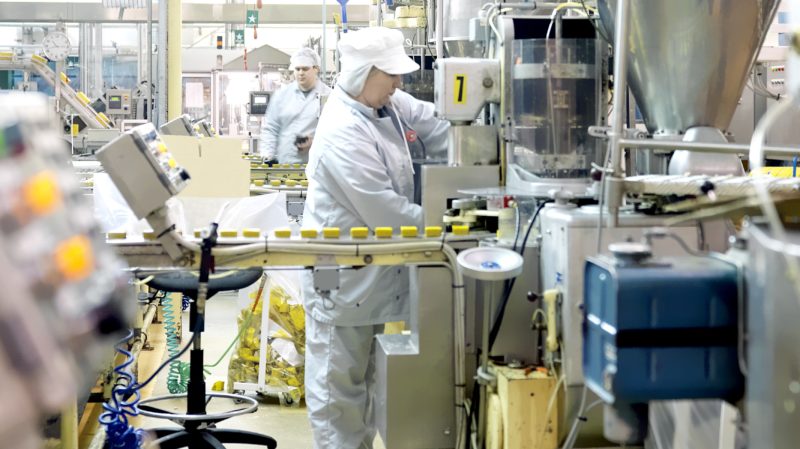
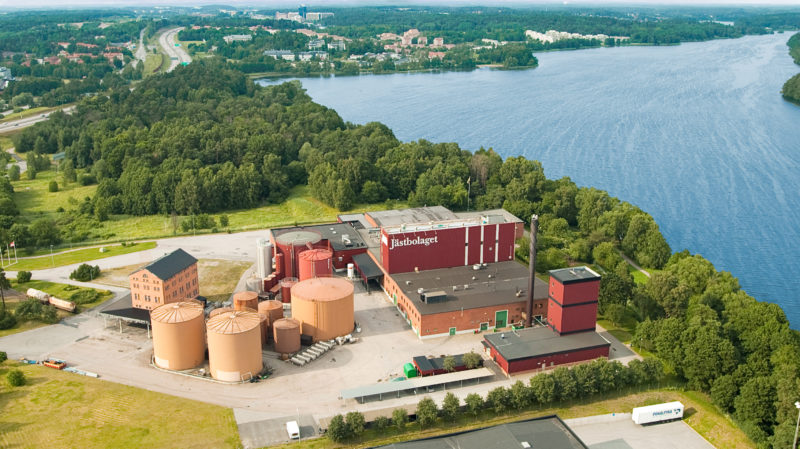
Organic fertiliser
Once the yeast has been separated off, the broth that is left behind still contains large amounts of organic matter. Rather than pumping this broth into the municipal sewerage system, we process it into two useful by-products. One is a liquid vinasse with a high concentration of nitrogen and potassium. The other is a semi-solid vinasse and has a high content of potassium salts. Both can be used by farmers as fertiliser, ensuring that these nutrients do not go to waste.
Energy Recovery
Fermentation generates heat, which is removed using cooling water. The heat energy in the warmed cooling water is then extracted using a heat converter and transferred to the municipal district-heating network, reducing the need for other forms of energy. The heat converter has an output of around 30 GWh, which is enough to heat 1,500 homes.
Recyclable packaging
For our packed yeast products, we use waxed paper, cartonboard, plastic film, returnable plastic crates and cardboard, all of which are readily recyclable. But more than 25% of our yeast is supplied as a ready-to-use cream in road tankers or containers with no packaging material at all.
Optimised transport solutions
Our products are transported to wholesalers, bakeries and retailers by refrigerated truck. Unfortunately there is not currently any real alternative to road transport. On the other hand, the construction of our own refrigerated storage facility on site in 2014 has eliminated the need for transportation to external warehouses, and running trucks as fully laden as possible helps minimise carbon emissions. Our main raw material, molasses, comes by rail from Skåne in southern Sweden or by sea from nearby countries in Europe.
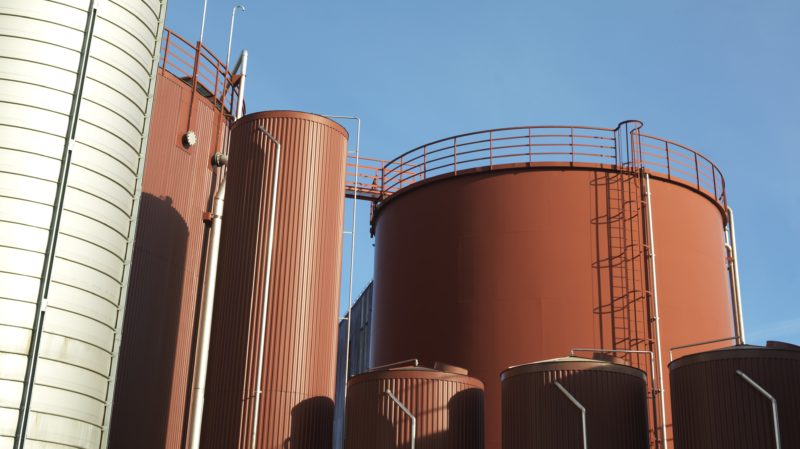
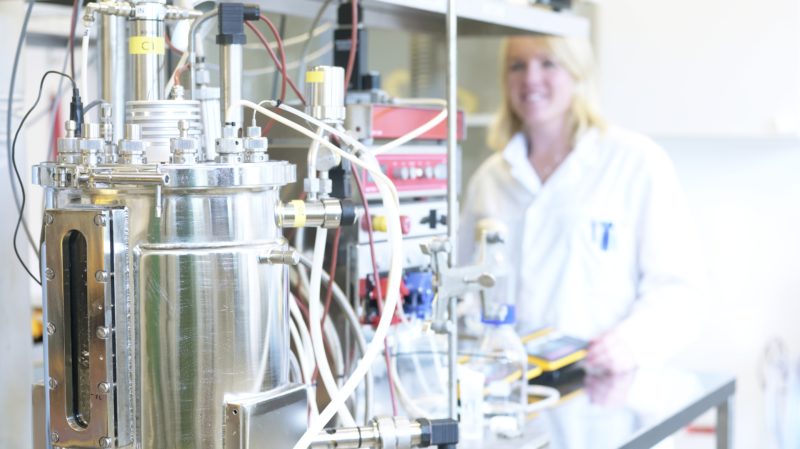
Environmental policy
- We comply with legal requirements as an absolute minimum and strive for continuous improvement towards our environmental goals.
- We follow Orkla’s sustainability guidelines.
- We make efficient use of natural resources, avoid spills and minimise waste and pollution.
- We report on our environmental impact and communicate with customers and other stakeholders on environmental issues.
- We always consider environmental issues in our purchasing decisions.
Environmental goals
- Work on overall goals Orkla EHS 2020. Energy, CO2, waste and water reduction and increased source separation.
- Action plan for odor-reducing activities for wastewater and evaporations.
Recent environmental improvements
- We have converted our boiler to run on biofuel rather than fossil fuel, reducing carbon emissions from our heat generation by 96%.
- Cardboard outer packaging for consumer products has been replaced with a returnable plastic crate system.
- We have continued to work on reducing discards and variations in the process.
- New videoconferencing equipment has decreased the need to travel to meetings with other parts of the Orkla Group.
- We have taken steps to reduce the amount of direct mail we receive.
- Waste in the canteen is now sorted at source by our staff into food waste, plastics and household waste.
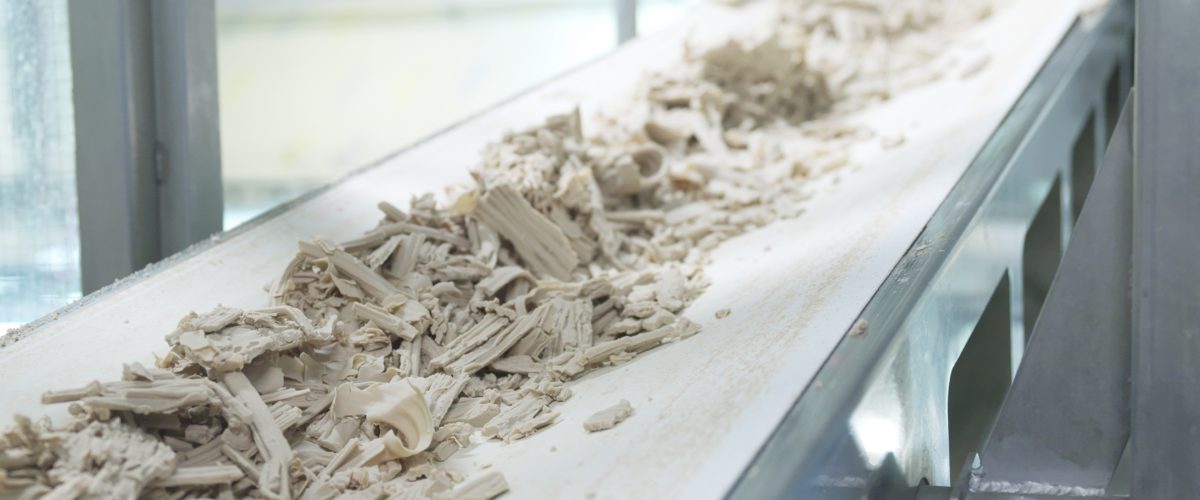
Quality
Quality is a key focus area at Jästbolaget. Continuous improvement is essential for maintaining the highest standards of quality in everything we do.
Jästbolagets quality policy
Jästbolaget is to meet customer expectations of its products and services through expertise, innovation and continuous improvement, and is to be the customer’s preferred supplier.
All of our activities must as an absolute minimum comply with official requirements, and our working environment and products must always be safe. We apply HACCP food safety principles and operate a quality management system based on the requirements of the Orkla Food Safety Standard (OFSS), BRC, KRAV organic certification and kosher certification.
Quality certifications
Jästbolaget is certified to BRC (food safety) and KRAV (organic products). We are also audited regularly in accordance with the Orkla Group’s internal standards.
Our yeast is kosher-certified, and we use no GMO or animal products. Our yeast products contain no ingredients on the EU’s list of allergens (Directive 1169/2011/EC) or additives derived from them.